
The Faculty of General Dental Practice UK and College of General Dentistry have published an updated synopsis of their guidance on the implications of COVID-19 for the safe management of general dental practice.
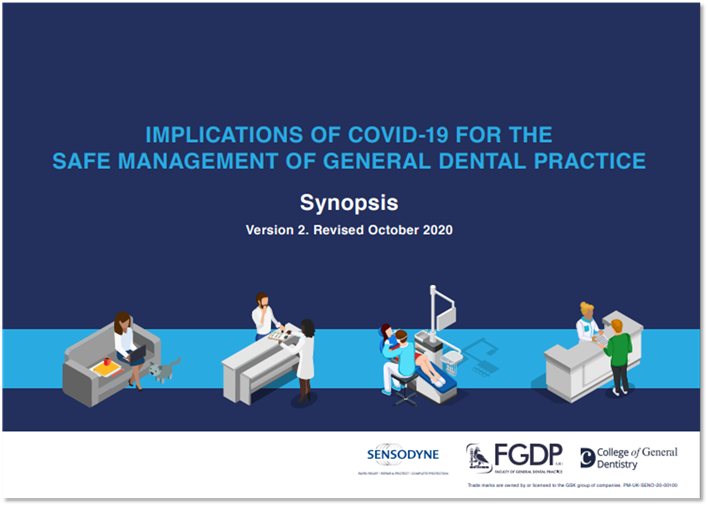

The Faculty of General Dental Practice UK and College of General Dentistry have published an updated synopsis of their guidance on the implications of COVID-19 for the safe management of general dental practice.

The second edition of Guidance Notes for Dental Practitioners on the Safe use of X-ray Equipment sets standards of good practice for the safe use of X-ray equipment in dental practice.
The guidance is freely available on the FGDP website, where hard copies are also available to purchase from the online shop, and FGDP members based in the UK will shortly be receiving a complimentary hard copy.
Presenting definitive, detailed and comprehensive recommendations in a logically ordered and intelligible format, Guidance Notes for Dental Practitioners on the Safe use of X-ray Equipment, 2nd Edition is designed as a reference for the whole primary care dental team.
The guidance covers both administrative and practical matters, taking into account developments in dental X-ray equipment, imaging technology and legislation since the first edition, which was published in 2001 by the National Radiological Protection Board (now part of PHE’s Centre for Radiation, Chemical and Environmental Hazards).
It was produced by a working party led by Public Health England and consisting of regulatory bodies, professional bodies representing dentistry and radiation protection, consultant dental radiologists and general dental practitioners.
The new publication includes:
The guidance supports compliance with the Ionising Radiations Regulations 2017 (IRR17) and the Ionising Radiation (Medical Exposure) Regulations 2017 (IRMER17), but does not impose any requirements on employers beyond those required by legislation.
Ian Mills, Dean of FGDP(UK) and Trustee of the College of General Dentistry, said:
“The core function of the FGDP is to raise the standards of care delivered to patients through education of the dental profession and the provision of evidence-based guidance, and we have been delighted to work with Public Health England to publish a second edition of the Guidance Notes for Dental Practitioners on the Safe Use of X-ray Equipment. For almost two decades, this has been an important text in setting standards for the safe use of X-ray equipment in dental practices, and this updated edition will undoubtedly continue to be a key reference document for the whole primary care dental team.
“We are grateful to PHE and the many contributors who have spent considerable time and effort ensuring that it is informative, accessible and highly relevant, and are indebted in particular to Dr Keith Horner FFGDP(UK)(Hon.), whose analysis of the revised regulations three years ago was the catalyst for this project, and who has been involved throughout as the Faculty’s representative on the working group.”
A new free-to-use Fallow Time Calculator has been launched to enable dental professionals to determine, justify and record the fallow period necessary following dental procedures carrying a higher risk of exposure to potentially-infectious aerosols.

Built by digital consent platform Flynotes, supported by Practice Plan and Wesleyan, and endorsed by the Chief Dental Officer for England, the new tool complements the COVID-19 guidance published by the the College of General Dentistry (CGDent) and the Faculty of General Dental Practice UK (FGDP), the recent update of which incorporates the Scottish Dental Clinical Effectiveness Programme (SDCEP) recommendations on fallow time.
Public Health England guidance currently recommends a fallow period of 60 minutes in a treatment room with less than 10 air changes per hour from the point that an aerosol-generating procedure is completed. The CGDent-FGDP guidance recommends that practitioners justify any decision to stray from this, record factors which allow reduction of the time, and include details in the clinical record for each patient.
The Fallow Time Calculator is designed to facilitate this process, and is based on SDCEP’s multifactorial approach to determining fallow time. Set out in its recent publication, Mitigation of Aerosol Generating Procedures in Dentistry – A Rapid Review, this sets a ‘benchmark’ time of 15-30 minutes, which will vary dependent on the type and length of procedure, the employment of procedural mitigations such as high-volume suction and rubber dam, and the availability of environmental mitigations such as air ventilation.
Available at https://myftc.co.uk, the Fallow Time Calculator also offers a full audit trail, updated regularly in accordance with the guidelines, which practices can use to aid diary planning, allowing efficient patient treatment flows whilst ensuring necessary fallow periods are implemented. Register at https://myftc.co.uk/register.
Ian Mills FFGDP(UK), Dean of FGDP(UK) and a Trustee of CGDent, said:
“I’m proud and delighted to launch the new Fallow Time Calculator, which is the result of a fantastic collaborative effort. I particularly want to thank two fellow members of our guidance task group for their work in developing it – Flynotes CEO, Govin Murugachandran, and Faculty member and Deputy CDO for England, Jason Wong – as well as Wesleyan and Practice Plan for their generous support, which has enabled both the development of the calculator, and its free publication for the benefit of the whole profession.
“The tool is based on the recent SDCEP recommendations, which provide a sensible, pragmatic and safe approach to managing fallow time and the potential risk from bioaerosol. I am confident that the Fallow Time Calculator will be seen as a significant aid to the dental team and will support dental practices to continue their transition back towards delivering routine care.”
The College of General Dentistry and Faculty of General Dental Practice UK and have updated their guidance on the implications of COVID-19 for the safe management of general dental practice, incorporating the reduced ‘fallow’ times recommended by the Scottish Dental Clinical Effectiveness Programme.
The guidance, first published on 1 June, supports dental professionals to take a risk-based approach to providing safe care, whatever the national COVID-19 threat level, at each step of the patient journey.
Among the distinguishing features of the document was its consideration of the risk of exposure to potentially-infectious aerosols arising from dental procedures as being on a continuum, rather than defining some procedures as ‘non-AGPs’ and treating all ‘AGPs’ as if they carry equal risk.
Members of the guidance task group felt compelled at the time to accept the 60-minute fallow period recommended by Public Health England following higher risk procedures. However, they also felt it would be more appropriate to adopt a more nuanced approach which also considered the length of procedure, as well as the potential to employ procedural and environmental risk mitigations, and suggested that reduced fallow times based on such factors might be justified.
The SDCEP review of aerosol-generating procedures in dentistry, published last week, takes just such factors into account in recommending context-specific fallow periods of between 10 and 30 minutes. While the FGDP-CGDent guidance has been thoroughly reviewed in light of the latest evidence and the experience of dental practices over the last four months, the most significant change is therefore the adoption of SDCEP’s fallow time recommendations, which have also been incorporated in an accompanying Fallow Time Calculator, which will be launched soon.
SDCEP’s review also divides dental procedures into groups according to their potential to generate aerosols, and to avoid any confusion over which procedures require fallow time, the FGDP and CGDent have ensured that those they classify in their guidance as posing a ‘higher exposure risk’ correspond to SDCEP’s highest-risk ‘Group A’ categorisation.
Available free of charge at https://cgdent.uk/standards-guidance, the revised document also provides additional detail and updated guidance on:
Dental professionals are invited to learn more by joining two related webinars, which will be free to view live through Prodental. On Monday 5 October at 7pm, representatives of FGDP, SDCEP, the BDA and the Office of the CDO for England will discuss The Mitigation of Aerosol Generating Procedures in Dentistry, and on Monday 19 October, Mythbusters 2 will look at the latest changes and challenges of COVID-19 in light of the recommendations of SDCEP, FGDP and CGDent.
Onkar Dhanoya FFGDP(UK), Vice Dean of FGDP(UK) and Chair of the task group which developed and revised the guidance, said:
“Our revised guidance, incorporating the fallow time recommendations arising from SDCEP’s thorough review of evidence on the generation and mitigation of aerosols in dentistry, will enable general dental practices to increase delivery of patient care while maintaining the safety of both patients and members of the dental team. “This in turn should help improve access to dentistry, addressing some of the unmet oral health need which has built up in recent months, and support the viability of dental practices as the pandemic continues. Thanks are due to all the members of the task group, which represents a huge range of organisations and professional disciplines, for once again pulling together for the benefit of our profession at this critical time.
The College of General Dentistry and Faculty of General Dental Practice UK have welcomed the Scottish Dental Clinical Effectiveness Programme’s review of the mitigation of aerosol-generating procedures, and will be issuing updated COVID-19 guidance shortly in view of its recommendations.
The SDCEP document, published today, represents the agreed positions of a working group comprising dental professionals from across primary care, secondary care, academia and public health, in addition to expert opinion from subject specialists in particle physics, aerobiology and clinical virology. The consensus report was compiled following a review of the currently-available evidence on the generation and mitigation of aerosols in dental practice, and the associated risk of coronavirus transmission.
Among the key positions, and in contrast to those adopted to date in official protocols, the report divides dental procedures into three categories of aerosol generation potential according to the instruments used, with fallow periods recommended only for the highest risk procedures, and suggests the determination of fallow time using a multifactorial approach with a ‘benchmark’ of 15-30 minutes.
The CGDent-FGDP guidance, published in June, also set out a more nuanced approach to considering the generation of aerosols in dental practice, and while allowing for potential adjustment of fallow time, accepted a 60 minute period following procedures carrying a higher risk of exposure to potentially-infective aerosols.
Ian Mills, Trustee of CGDent and Dean of FGDP(UK) – and a member of the SDCEP’s review group – said:
“SDCEP’s review of dental AGPs has been extremely thorough, and followed a rigorous and methodical approach. Its publication is potentially a very significant moment in the recovery of dental practices in the midst of the coronavirus pandemic and I commend the SDCEP Team for the hard work and dedication they have shown in producing this report.
“We welcome in particular the more refined stratification of the transmission risk inherent in types of dental procedure; the allowance for fallow time to be calculated from the cessation of the procedure; and the sophisticated approach to calculating fallow time, which considers both procedural and environmental mitigation factors such as high-volume suction, the use of rubber dam and provision of adequate air ventilation.
“These approaches align exceptionally well with our own guidance and we feel it is important that current standard operating procedures are reviewed in light of SDCEP’s recommendations. Adoption of these measures will enable the increased delivery of patient care to tackle the backlog of unmet need, and avoid further deterioration in dental access and oral health inequality. A reduction in fallow time will also support the viability of practices, while the maintenance of universal precautions will continue to keep both patients and members of the dental team safe.
“We aim to update our guidance as soon as possible, and are currently working with partners to develop an online Fallow Time Calculation Tool to support its implementation.”
SDCEP’s Mitigation of Aerosol Generating Procedures in Dentistry – A Rapid Review is available at https://www.sdcep.org.uk/published-guidance/covid-19-practice-recovery/rapid-review-of-agps.
The current CGDent-FGDP guidance, Implications of COVID-19 for the safe management of general dental practice – a practical guide, is available at https://cgdent.uk/standards-guidance.
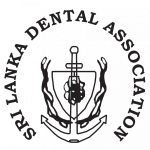
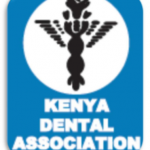
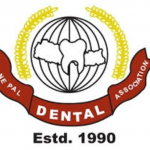
Sunday 9 August 2020
The COVID-19 pandemic caused dental practices across the world to close for several months. As practices started to re-open, dentists, dental care professionals and governments tried to work out the optimum way in which dental care could resume, while ensuring the safety of patients, staff and the community. The volume of information that came out could be challenging to navigate for the practising dentist and this webinar provided practical and evidence based guidance for the safe return to practice.
This webinar was developed in particular for dentists and dental care professionals practising outside the UK, with the opportunity to address the most popular and relevant questions, and was hosted in association with the Faculty of General Dental Practice, Sri Lankan Dental Association, Kenya Dental Association, Prodental CPD and the Nepal Dental Association.
The Panel members are from the task group which developed the CGDent-FGDP(UK) guidelines, Implications of COVID-19 for the safe management of general dental practice, and several have experience of dental practice in South Asia.
Chair:
Panellists:
Participants were invited to submit two questions on registering, and the most popular questions were selected for the panel to answer.
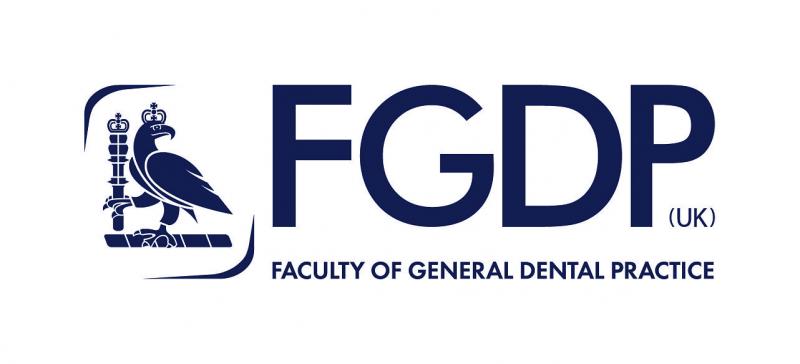
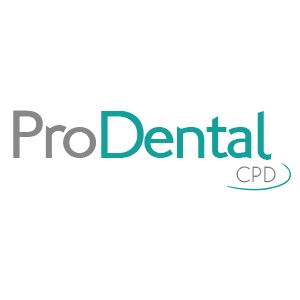
This webinar, held in conjunction with ProDental CPD and the Faculty of General Dental Practice (UK), looked at safe working in the UK during the COVID-19 pandemic.
Panellists:
CPD will be available:
Aims:
Objective:
GDC Learning Outcomes:
The College and FGDP(UK) have published a synopsis of their guidance on the implications of COVID-19 for the safe management of general dental practice.
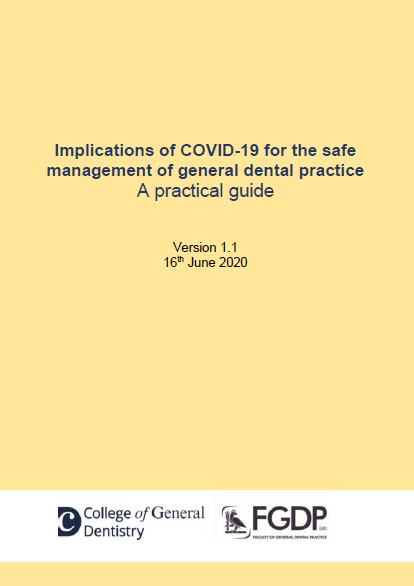
The new synopsis highlights key recommendations at each step of the patient journey, and is designed to be used in conjunction with the guidance, which supports dental professionals to take a risk-based approach to providing safe care, whatever the national COVID-19 threat level.
The guidance, originally published on 1 June, has also now been updated with some minor amendments. Among these, prophylactic polishing of teeth has been added to the risk stratification matrix, use of face coverings by all patients and carers in non-clinical areas is now recommended (in line with government advice on preventing transmission in enclosed public spaces), and the use of shoe and head coverings is only now advised when indicated by a risk assessment. There are also some clarifications, such as around selection of PPE based on a risk assessment, and on the mopping of floors between patients following treatment carrying a high risk of exposure to aerosol.
Both the synopsis and guidance are available on the FGDP and CGDent website.
Production of the synopsis has been supported by Sensodyne.
Wednesday 3 June 2020, webinar
Earlier this week, the Faculty of General Dental Practice (FGDP(UK)) and College of General Dentistry published Implications of COVID-19 for the safe management of general dental practice – a practical guide.
In this webinar, questions about the guidance were answered by members of the development group:
This event has finished. Details of a recorded version will be posted shortly.
Supported by Sensodyne

The FGDP(UK) and newly formed College of General Dentistry have convened an expert task force to review the evidence base for dental practice during the COVID-19 outbreak and have today launched the official summary report of the guidelines ‘COVID-19: guidelines for safe care in general dental practice’.
The Guidance can be accessed here.
The UK wide task force panel includes 30 senior members of a number of organisations, including the British Dental Association, the Faculty of Dental Surgery of the Royal College of Physicians and Surgeons of Glasgow, the Faculty of Dental Surgery of the Royal College of Surgeons of Edinburgh, the Association of Dental Groups, the Association of Dental Implantology and the newly-formed British Association of Private Dentistry and has received support and input from groups across the profession including the British Society of Dental Hygiene & Therapy and the British Association of Dental Nurses. It supports dental professionals to take a risk and evidence-based approach to providing care in the current circumstances and allows the flexibility of setting minimum requirements whatever the national COVID-19 threat level.
Ian Mills, Dean of FGDP(UK) comments “During the initial stages of the pandemic it was important that all but emergency dentistry procedures were paused. However, we are now at a point where the risk to the oral health of the population will be impacted unless practices are able to reopen, albeit with the correct protection for patients and the dental team.
This guidance has been developed as a framework to enable the confident return to practice, now and also into the future as the situation with COVID-19 continues to evolve. It is the result of the collaborative effort of a team of dedicated individuals from across the profession who have spent the last few weeks committed to reviewing the evidence, assessing the risks and finding a way forward.”
In line with other FGDP(UK) Guidance and Standards publications, the guidance adopts the ABC (Aspirational, Basic, Conditional) approach to measures with ‘basic’ measures being a minimum standard.
The guidance is divided into five sections – four of which reflect the patient journey and the fifth concerns general management of the practice. These sections are assigned a risk status and ABC based risk mitigation measures to ensure safe practice and include:
Onkar Dhanoya, Chair of the Task Group, commented “These guidelines have been developed to address the specific needs of primary dental care. This includes the recognition that whilst safety of patients and team members is the priority, closure of practices is in itself harming patients, their oral health and psychological wellbeing. The use of the risk matrix tables within the guidance allows us to reflect the varied needs of practices and the fluid nature of the current situation.”
Roshni Karia, Junior Vice Dean, FGDP(UK) comments “The COVID-19 pandemic has brought uncertainty to a number of aspects of daily life. This guidance aims to help develop specific strategies for primary dental care with a realistic approach to what can be achieved in practice. It also provides guidance for supporting patients and staff who may be in greater risk categories. By working together as a team, we can all proceed with confidence and help to sustain trust in dentistry overall.”